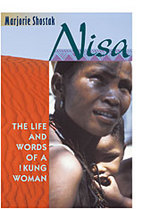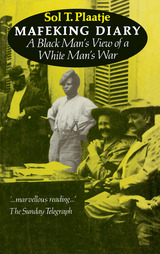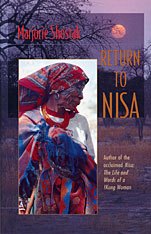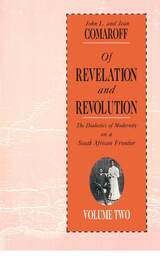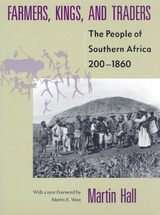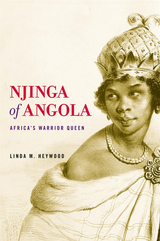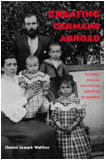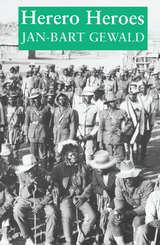Even after twenty years, Marjorie Shostak's Nisa is my all-time favorite women's life story. But I have always wondered what happened to Nisa. How did this gutsy woman fare as her hunting and gathering life disappeared in the wake of the transformations sweeping modern Africa? And what was the effect on Nisa of her close association with Shostak, the anthropologist who first told her story for the world to read? Return to Nisa gives some compelling and deeply moving answers, as Marjorie Shostak describes with eloquence and candor the connectedness and friendship—sometimes tense—between women from such different worlds. Each woman lives life and confronts death on different terms, yet both are sustained through time, change and personal loss by their shared sisterhood. A remarkable story, beautifully told.
-- Sarah Blaffer Hrdy, author of Mother Nature
Here at last is the long awaited sequel to Nisa. Now we follow Marjorie Shostak's determined footsteps as she returns to Africa and the Dobe !Kung to confront her past, the conceits of her discipline, the humanity and uncertain future of her informants, and her own mortality. It is a book about obstacles, boundaries, borders and limits. It is also about love in spite of itself. Here is soul searching and truth telling at its most exacting.
-- Nancy Scheper-Hughes, author of Death without Weeping: The Violence of Everyday Life in Brazil
Return to Nisa describes a valiant journey, a search for healing on the edge of the Kalahari. This moving journal, now brought to fruition by Marjorie Shostak's friends after her untimely death, charts the enduring bonds of friendship. It is an ode to sisterhood and to hope, to the flesh and to the spirit, to all that is glorious in life and all we leave behind.
-- Alice Hoffman, author of Here on Earth
This posthumous work is unequaled in the genre of fieldwork revisitations, and even more, of memoirs about living with cancer. Transcending routine discussions of reflexivity, fieldwork, and the ethnographic vocation, it is extraordinarily moving anthropology.
-- George Marcus, Professor of Anthropology, Rice University
Lyrical, spiritual, wise, Return to Nisa completes a circle started decades ago in the encounter between an American writer and a !Kung San woman of the Kalahari Desert. Part ethnography, part personal odyssey, the book's engrossing narrative is made more poignant by the author's circumstances, for in addition to facing an alien culture and the rigors of the desert, Marjorie Shostak was facing her own mortality in the form of an advancing cancer. Rarely have the personal demons of ethnographic field work been so eloquently articulated, and confronted. Nisa's complex place in Marjorie's healing journey lies at the heart of the story. As one who knew them both, I cherish this remarkable book.
-- Richard B. Lee, University of Toronto
In Nisa: The Life and Words of a !Kung Woman, anthropologist Shostak presented the exceptional, outspoken Nisa, along with ethnographic descriptions of the !Kung, a group of hunter-gatherers in the Kalahari desert. In this sequel, published posthumously, Shostak, a mother and cancer patient, returns to…Nisa's village in Botswana in order to study changes in the lives of the !Kung… As in the earlier book, Nisa and other !Kung relate their life stories, but Shostak's is the primary voice here, recording the fascinations and frustrations of field work.
-- Lucille M. Boone Library Journal
Nisa is probably the single most compelling personality to become known to the world through ethnography. The story of her life, as revealed through her relationship with Marjorie Shostak, has vastly deepened our knowledge of women's experience in an African hunter-gatherer society. Shostak's return to find Nisa, decades after their first meeting, is an unforgettable adventure, beautifully evoked and rich in cultural insights and personal discoveries.
-- Robert LeVine, Harvard University
In 1989, after being diagnosed with breast cancer…[Shostak] decided to revisit the land of Botswana, where she had lived 14 years earlier. All those years ago Shostak had studied the people and the land of the !Kung community and had written the acclaimed work, Nisa: The Life and Words of a !Kung Woman… These many years later, as she is dealing with a sense of her own mortality, Shostak returns to the !Kung and to Nisa, who is one of her dearest friends, to continue her insight into this culture. The mutual fondness and respect these two women have for each other is obvious. Return to Nisa is a moving story about the sustaining power of friendship.
-- Julia Glynn Booklist
We are presented with the story of a woman and a mother, suffering a terrible and life-threatening disease, who seeks healing, hope and understanding among another people far from home… Shostak writes a moving and absorbing travelogue about her attempt to deal with the realization of her own mortality. There is some wonderful description that draws the reader into the story and a compulsive emotional honesty that enfolds the reader, inspiring empathy.
-- Tristan McConnell Times Higher Education Supplement
No standard anthropology text, this is a personal memoir, haunted by Shostak's battle with breast cancer… Shostak sets out for [Africa] once more, but the romantic vision of a quest soon evaporates. This time, Nisa's people are more concerned with their own affairs than with talking to Shostak… For Shostak, these are spiritual moments; for the !Kung they are performances, and everyone wants to be paid. Here we have fieldwork, warts and all. Return to Nisa offers no neat package of connection and redemption, but Shostak does tell a compelling tale of her need to revisit a place and a people who represented a defining period in her life.
-- Meredith F. Small Natural History
In the end, a touching paradox emerges with the realization that for all the changes over time, the issue here may not be so much how we, the Western strangers, have changed the !Kung, but how much they have changed us… It brings the lives of both Nisa and Shostak in full circle and, in doing so, earns our gratitude for its celebration of the commonality of the human career.
-- Carmel Schrire Journal of Anthropological Research






